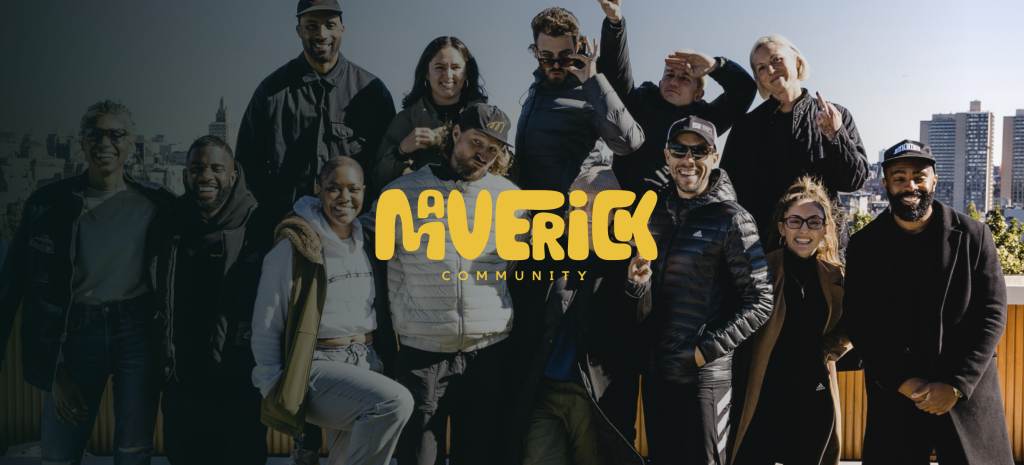Imagine owning shares in a business based on usage, not dollars. Imagine the good work you do for the world is recognized via ownership in a company that appreciates your impact. Imagine being the neighbor to a home used to host vacationers and being able to weigh in on decisions right along with the business owners, stakeholders, and vacation hosts. Imagine.
Some experts and owners would say there is no need to imagine. The world is already growing beyond the usual profit-for-a-few model.
“We have evidence all around us that societal expectations of business are shifting,” Clarisse Magnin-Mallez said during a 2021 McKinsey Global Initiative (MGI) Inside the Strategy Room podcast. “I found it striking that 87 percent of people who were asked about the role of companies declared that they should create value for multiple interests, not just make profits.”
The profit-from-the-top-down business model is changing, according to OwnCo co-founder Harry Wilson. Wilson and co-founders Sascha Kellert and Špela Prijon launched OwnCo in January 2023 to help early-stage businesses share ownership with their community contributors, empowering their voices in shaping and growing entities that affect them.
Wilson said that community-minded founders and business owners want to make a positive change in the world by looking at alternative ways to grow a business beyond the usual “cash-burning” strategy. They also want to share their profits with community contributors who have added value to their companies or organizations. That value manifests in a variety of ways, including participation, purchasing services, new business referrals, doing good for community organizations that support a business’s mission, or other non-monetary contributions.
“We’re working with a fitness company called Maverick who wanted to attract the top 10 trainers in LA. So how can they do that? By giving them ownership, because these people are at the top of their field, and possessing ownership is something that appeals to them,” Wilson said.

Similarly, OwnCo client Somos offers free and fee-based services for the use of an online platform that helps language instructors from all over the world grow an ecosystem for teaching, connecting with students, building community, and marketing their classes and products. Instructors who charge for their classes, services, and products will be charged a percentage-based fee where they keep 90 percent of their sales. Somos assesses a nine percent commission and gives one percent to community partners who engage in work relative to their mission. As for community ownership, Somos is very similar to Maverick’s template for awarding their shares.
“We’re not asking for money,” says Khawar Malik, Somos founder and CEO. “Teachers’ participation will generate ownership shares.” Somos has only recently begun to set up their co-ownership program, but Malik said participation could include receiving tokens when teachers sign up students for paid classes or elect a “Lifetime” deal for a one-time charge.
Somos will set aside 32.5 percent of its business for community ownership. Refugee employees, teachers, and core community partners aligned with Somos’s mission to champion language, workers, and migrant rights will be eligible for this option.
OwnCo client Novlr, a platform for writers to plan, draft, and publish their work, will initially set aside 10% of its business for co-ownership opportunities. According to co-founder Thomas Muirhead, after they accrue over 10,000 co-owning writers, the community-owned portion of the company could grow from 10 percent to 20 percent.
“There is a general swell of enthusiasm for employee ownership, community ownership, and stakeholder ownership. It’s an important shift toward the organizations we want to design to be like in the future. The people who [add] value to an organization should be the ones who benefit from it,” Muirhead said.

Whether companies accept in-kind contributions as a pathway to co-ownership, modest monetary investments remain an option. Novlr co-owners will be able to pay a one-time buy-in fee bundled with a lifetime membership. In return, these writer co-owners will elect representatives to an executive board to weigh in on how the business grows. A “Writer’s Trust” will be established to enable the redistribution of future profits to community owners.
For community-centered entities like Maverick, Somos, and Novlr, OwnCo helps establish transparency between founders and their community contributors. Founders use OwnCo’s platform to administer credits, set goals, disburse payouts, and sign legal contracts with their community to identify expectations. Contributors, too, can see the business’s activities, monitor their shares, and execute other agreed-upon tasks.
OwnCo, has also designated 30 percent of its equity for community contributors or people who subscribe to the platform or provide referrals. Customers who pay at least the $500 monthly subscription fee get 400 OwnCo shares, which could be worth over $20k by 2025 if OwnCo is successful.
“We use our own model, so we are co-owned by our community. If you are a customer, then you also get ownership in OwnCo. If you help us get customers, you get ownership, too,” Wilson said. Currently, OwnCo has 25 clients doing business in the United States, Canada, Brazil, and Europe, including the United Kingdom.
Wilson said OwnCo has no direct competitors, although growing distrust, disenfranchisement, and dwindling patience with traditional investments and profit-driven models have led people to place their trust, their money, and/or their participation in similar community-empowering ownerships, like crowdfunding, communal farming, property coops, credit unions, investment pools, and ROSCAs (rotating savings and credit associations). These have all been ways to empower and include people who have habitually felt left out of traditional wealth-building and ownership models.
In the 2020 Shareable article, “From Sharing Economy to Community Economy: Why it is important to learn how to design communities,” Marta Mainier wrote, “The community economy is the most interesting evolution of the sharing economy, an economy made up of companies, groups, places that put the community at the center of their business strategy; by doing so, they transform markets and organizations.”
Muirhead hopes Novlr’s community-ownership initiative will transform the publishing industry. “The main driver for this is the goal for Novlr to really grow, to scale where it really represents creative writers, where changes in the publishing industry might be possible because — as a writer-owned industry — we may be able to lobby as a group and disrupt the publishing industry,” he said.
Though OwnCo currently only works with budding businesses and organizations, Wilson can see a scenario where community ownership is not primarily driven by the owners, but also the contributors. “It would be interesting to get community members to rise up and start demanding changes from [traditional businesses],” he said. “For them, we could be the platform that organizes petitions… to say that if you share ownership, they’d help grow the business with this or that contribution.”
“It’s all about putting a dent in the world. With our model, decisions are made by the people who are impacted by the business. Instead of an Airbnb CEO who lives on another continent, the vacation hosts and neighbors will have a say over how proceeds are invested and distributed. So you have more wealth distribution, and thousands of people can have an impact on businesses that affect them, instead of one or a few,” Wilson summed.









